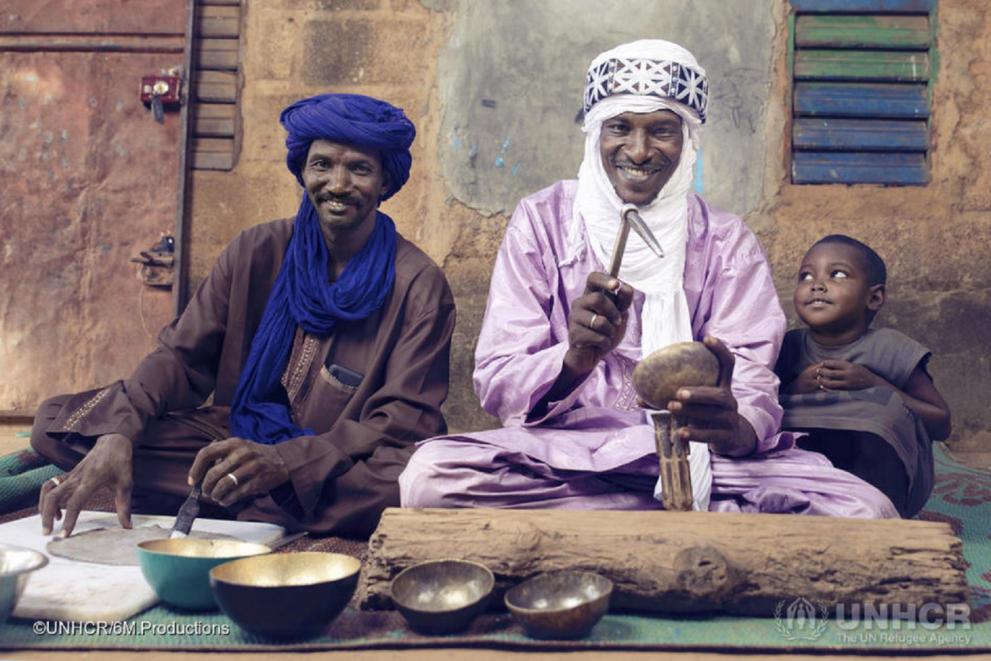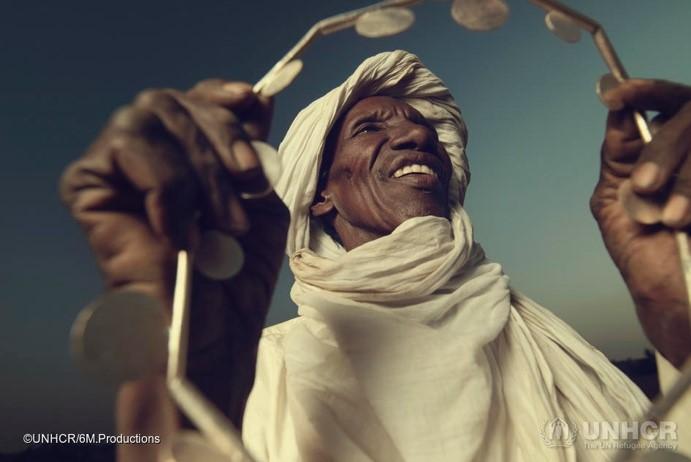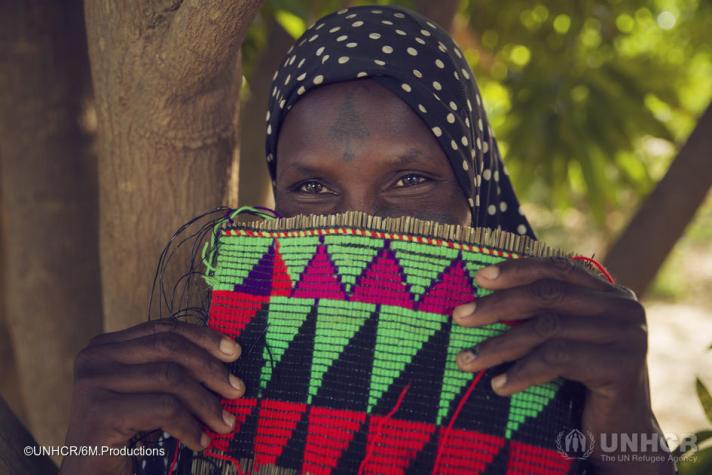
Today, an unprecedented 79.5 million people have been forced to flee their homes due by war, violence, disaster and persecution. Whenever refugees flee their homes, they leave behind their jobs, their livelihoods and prospects. They do however take with them their incredible artisan skills, traditions and cultural heritage, often passed down from generations. Yet relaunching the production and sale of artisanal products in a country of asylum is not easy – especially when host countries also face their own security issues and economic challenges.
UNHCR, the UN Refugee Agency has launched MADE51, a global brand of artisanal home décor and accessories crafted by refugees. MADE51 offers a way for refugees to preserve their cultures and re-establish their livelihoods through participation in the local, and global economy.
MADE51 identifies refugee artisans, helps them create strong artisan groups and connects these groups to experienced local social enterprise to work together to create a unique product line, which is sold alongside the business’ regular products. The local social business becomes the critical linkage between refugee artisans and global markets.
MADE51 is currently present in 16 countries with 22 social enterprise partners, each of which has gone through an assessment and onboarding process in collaboration with the World Fair Trade Organization, UNHCR’s implementing partner. In this way, UNHCR ensures that social businesses adhere to Fair Trade practices and, through regular monitoring, upholds its mandate to protect refugees. Where needed, MADE51 supports social enterprises’ business development efforts, artisan training and product development work.
MADE51 also supports these partners by marketing their products under the MADE51 brand to global retailers and consumers. Through demand creation and sales, artisan work becomes a sustainable source of income for both forcibly displaced people and the communities that host them.
Sidi
“We learn new things from each other and give each other courage and strength. A product that is the result of a hard work in group has more value than a product I have made myself alone.” – Sidi, a Malian refugee jeweller in Niger.Sidi is a 55-year old father of six and was born in Gao. Two of his children are born in exile.
“As a Tuareg blacksmith, I make almost everything that is necessary for daily life and survival in the desert: tents, bags, saddles, swords, pottery, padlocks, keys, shields, beds, musical instruments and, of course, jewellery.
[With Made51], we learnt how to make jewellery combining different products such as leather, silver and horn. … Working with other artisans motivates me.
With the money I make, I can feed my children, buy clothes and pay their school fees. I can also buy some raw material to continue to work and improve my craft.”
Ousseina
Ousseina is 35-year old mother of six coming from the Fulani community. She is a Malian weaver who found refuge in Niger. “My mother learned the art of weaving from my grandmother, and in turn taught it to me. Weaving a carpet takes up to 12 months, and I can get between USD200 to 300 per carpet.
Couples who about to get married usually buy them, as part of the wedding ceremony.
Even now, in the refugee camp, I continue to weave carpets. The income allows me to buy soap, food, clothes for my family. When I have some money left, I buy a goat.
I really enjoy working with the other women because we exchange techniques. It gives me hope to go back to Mali one day. These carpets sell themselves.”
With the support of the European Union Emergency Trust Fund for Africa (EUTF), UNHCR strengthened the MADE51 in Burkina Faso and launched the concept in Niger, where it has identified a suitable social enterprise and is supporting the design of a new product line created by refugee artisans.
As part of this work, MADE51 has provided learning opportunities, like the training Sidi and Ousseina took part in, and remote technical support. This year, UNHCR plans for a new regional collection, which will allow the inclusion of refugee artisans in Mauritania and refugees returning to Mali.
Details
- Publication date
- 24 July 2020
- Region and Country
- Regional
- Thematic
- Improved migration management
- Partner
- United Nations High Commissioner for Refugees


